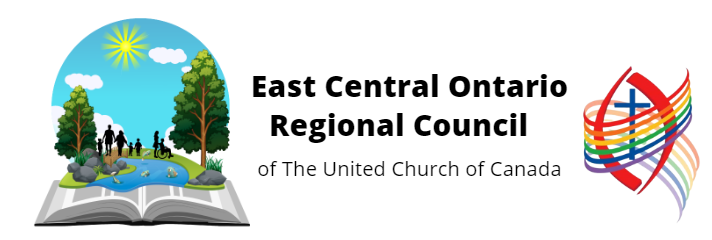Indigenous Justice & Respectful Relationships
Territorial Acknowledgment
The East Central Ontario Regional Council (ECORC) of the United Church of Canada acknowledges that its buildings and ministries are on traditional territories of Indigenous Peoples.
CONTACT
Reverend Rodney Smith-Merkley is the Regional Council’s Minister for Indigenous Justice and Respectful Relationships
Phone: 1-800-268-3781 Ext. 6164
Email: RSMerkley@united-church.ca
Remit on the structure of the Indigenous Church
ECORC’s Indigenous Justice & Respectful Relationships Forum held an information session on Monday, April 24th to discuss the Remit on the structure of the Indigenous Church. How the United Church has taken two important steps toward right relations. In its General Council 44, meeting virtually, The United Church of Canada has approved two proposals that advance the journey toward an autonomous Indigenous Church within The United Church of Canada. You can read the first proposal (referred to as NICO1) by clicking HERE and viewing or downloading the PDF document. The second proposal (GS10) can be viewed/downloaded by clicking HERE. Each community of faith will need to vote on this remit. You can find more information by visiting Remit 1: Establishing an Autonomous National Indigenous Organization | United Church 44th General Council (generalcouncil44.ca).
Remit Video Recordings
- (1) Remit 1 Information Session – October 4, 2023 – YouTube
- ECORC’s Remit Presentation, April 2023 PART 1 – Land Acknowledgement and Blessing
- ECORC’s Remit Presentation, April 2023 PART 2 – The Importance of the Remit
- ECORC’s Remit Presentation, April 2023 PART 3 – Our Commitment and The Rev. Dr. Teresa Burnett-Cole
- ECORC’s Remit Presentation, April 2023 PART 4 – A story along with Q&A on the Remit
Did you know we have a playlist on our East Central Ontario Regional Council’s (ECO RC’s) YouTube channel? Click the button below!
Calls to the Church
Calls to the Church articulates the Indigenous Church’s vision for the ongoing development of Indigenous Peoples’ mission and ministry and communities of faith within The United Church of Canada.
It outlines pathways for the whole church to continue to walk in the Spirit of Christ toward justice, healing, and reconciliation.
For more info, visit: United Church of Canada – Calls to the Church
Informative Links
National Day for Truth and Reconciliation, September 30, 2023 – Resources and Events
Reconciliation and Indigenous Justice | The United Church of Canada (united-church.ca)
The Apologies | The United Church of Canada (united-church.ca)
The Truth and Reconciliation Commission | The United Church of Canada (united-church.ca)
Doctrine of Discovery | The United Church of Canada (united-church.ca)
Justice and Reconciliation Fund | The United Church of Canada (united-church.ca)
Indigenous Learning Resources
Indigenous Peoples Atlas of Canada
In this atlas, you will find outstanding reference maps of Indigenous Canada, as well as a section devoted to Truth and Reconciliation, including detailed pages on many aspects of the topic with contemporary and historical photography, maps and more. There’s also a glossary of common Indigenous terms. This atlas was created by The Royal Canadian Geographical Society in conjunction with the Assembly of First Nations, Inuit Tapiriit Kanatami, the Métis Nation, the National Centre for Truth and Reconciliation and Indspire.
For more info, visit: Indigenous Peoples Atlas of Canada
21 Things You May Not Know About the Indian Act
…the essential guide to understanding the [Indian Act] and its repercussions on generations of Indigenous Peoples, written by a leading cultural sensitivity trainer.
For more info, visit: 21 Things You May Not Know About the Indian Act
Indigenous Relations – Insights, Tips & Suggestions to Make Reconciliation a Reality
Practical tools that will help you respectfully avoid missteps in your business interactions and personal relationships with Indigenous Peoples.
For more info, visit: Indigenous Relations – Insights, Tips & Suggestions to Make Reconciliation a Reality
2021 Archives
Stories, Newsletters and all information shared in 2021 (will open in a new window)
